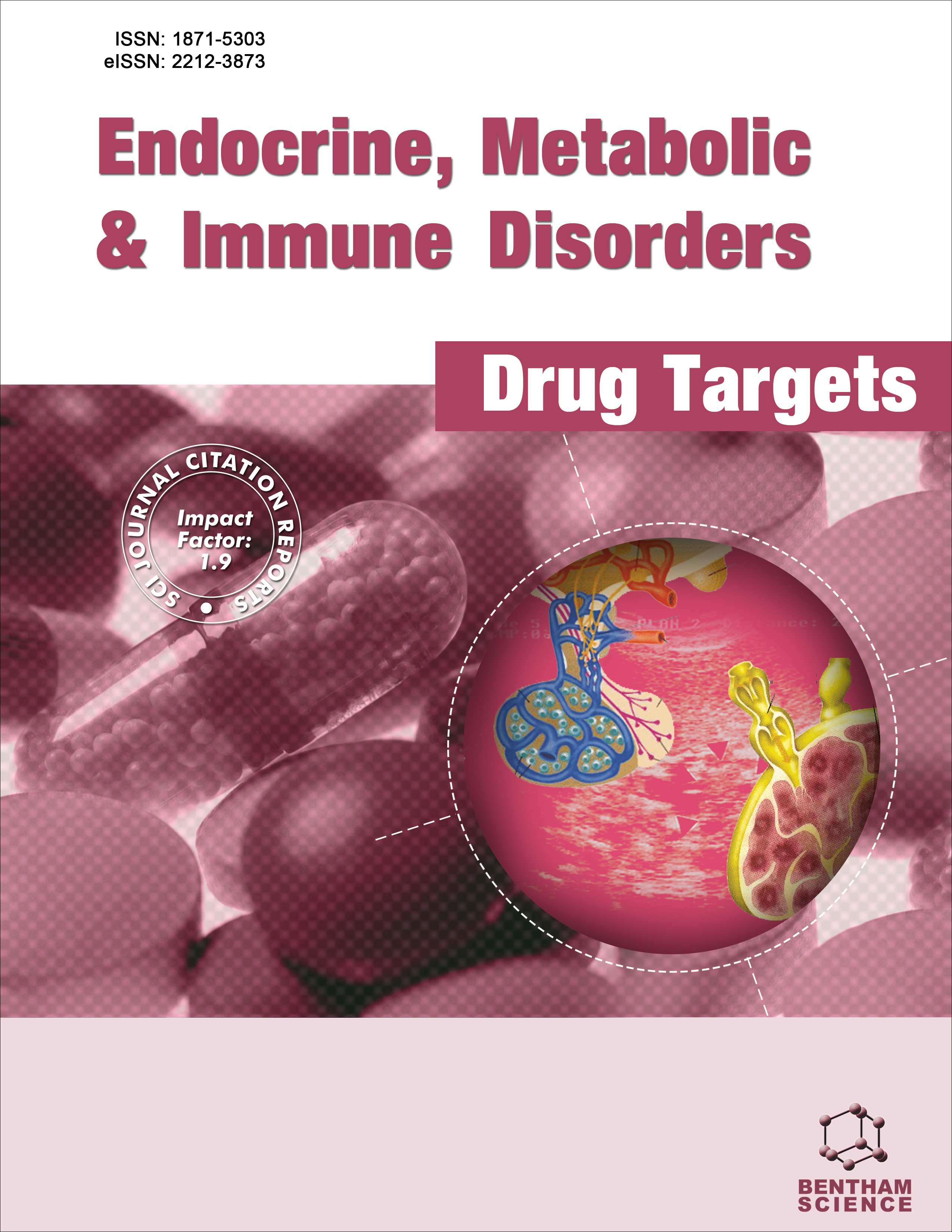-
oa The Potential Systemic Anti-Inflammatory Effect of Turmeric Dried Extract
- Source: Endocrine, Metabolic & Immune Disorders-Drug Targets, Volume 25, Issue 14, Nov 2025, p. 1191 - 1198
-
- 09 Jul 2024
- 23 Sep 2024
- 08 Jan 2025
Abstract
Curcumin is a polyphenolic compound derived from the food spice turmeric that has received interest from the medical and scientific world for its role in the management of several conditions. Clinical studies, in humans, have shown that ingested Curcumin is safe even at high doses (12 g/day), but it has poor bioavailability primarily due to poor absorption and rapid metabolism and elimination. Several strategies have been implemented to improve the bioavailability of Curcumin, for example, the combination of piperine in a complex with Curcumin, or the usage of formulations with phospholipid or liposomal complexes.
The present work aims to explore and compare the systemic anti-inflammatory effects of two different types of Curcumin: a traditional fat-soluble formulation (95% Curcumin) and an innovative standardized reconstituted water-soluble one (Curcuin), made in micelles in aqueous solution.
Research was conducted on 30 patients, 15 patients were treated with turmeric (Curcuma longa L., rhizome) dried extract titled 95% Curcumin (Curcumin 425mg/day) conjugated with piperine, and 15 patients were treated with Curcumin (turmeric 286 mg dried extract titled 35%; Curcuminoids 100 mg/day, standardized water-soluble) made in micelles in highly absorbed aqueous solution. We considered the quantitative variations of laboratory parameters: Erythrocyte Sedimentation Rate (ESR), C-reactive protein (CRP), Ferritin (24 to 336 ng/mL for adult males), and cholesterol LDL.
Patients treated with dried extract titled 95% Curcumin, for 90 days, show a lower value of ESR, CRP, Ferritin, and LDL cholesterol compared with the same laboratory parameters before the introduction of Curcumin into the diet. Also, patients treated with Curcuin report a lower value of ESR, CRP, Ferritin, and LDL cholesterol after the introduction of turmeric dried extract in the diet, but with a major significance compared with those obtained with 95% Curcumin conjugated with piperine.
As we had hypothesized, both turmeric-derived extracts have successfully reduced ESR, CRP, Ferritin, and cholesterol LDL values, exerting an anti-inflammatory action and anti-cholesterolemic action. These results suggest a possible use of Curcumin and in particular Curcuin as a coadjuvant for the treatment of inflammatory disease and to decrease cholesterol levels. However, additional investigation is needed to resolve doubts regarding Curcumin dosage form, dose, and medication frequency.


